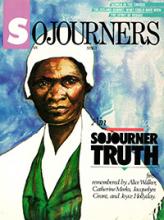I was on my way to our weekly community meeting. It was a warm summer night, and the streets were full of people. As I rounded the corner of Euclid Street and headed up 13th, I saw a gathering crowd fixed on something in the middle of the street.
A young man, shirt off and a wild look in his eyes, was dancing up and down the center line of the street, in the middle of traffic. He seemed to be in a world of his own, making strange and violent movements and pounding on cars as they slowed for the traffic light. The signs were all too familiar--he was high on PCP.
Someone, most likely the young man, was going to get hurt unless something was done. Many people stood watching, shaking their heads and talking about how dangerous the situation was, but no one made a move to help. As usual, most of the onlookers were waiting for someone else to make the first move. When you are dealing with PCP there is good reason for caution. The drug produces very violent reactions and increases the strength of the user.
It was clear that the doped-up young man had to be brought out of the street and given medical attention. I carefully stepped into the street toward him.
Just as I did another young man appeared, riding up on his motorcycle. "Hey Jim," he said, "it looks like you could use some help."
I hadn't seen Anthony for a long time. As a boy he was always in trouble. Like too many inner-city kids, petty crime in the form of break-ins, stealing, and lying had become a way of life for Anthony. He used to live across the back alley from us and, with a couple of friends, had broken into many houses on the block, including ours. We tried to work with all of them, their families, and the police, but without much success. We later moved a block away, and we lost contact with Anthony. I hadn't seen him for years when he pulled up on his motorcycle to offer help in a tough situation.
Read the Full Article

